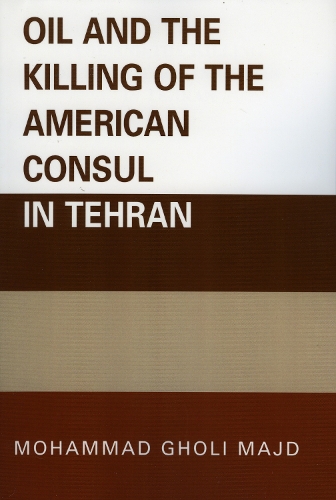
Oil and the Killing of the American Consul in Tehran
(Paperback)
Publishing Details
Oil and the Killing of the American Consul in Tehran
By (Author) Mohammad Gholi Majd
University Press of America
University Press of America
5th June 2006
United States
Classifications
Tertiary Education
Non Fiction
333.8232150955
Physical Properties
Paperback
358
Width 176mm, Height 230mm, Spine 21mm
476g
Description
In the wake of World War I, British attempts to exclude American oil companies from Iraq and Persia caused serious strains in Anglo-American relations. In May 1921 an "oil entente" was reached that granted American oil companies an "open door" and "equal opportunity" in Iraq, and in return America acknowledged British domination of Persia and monopoly of its oil. This entente was soon tested when Persians gave an oil concession to the Sinclair Oil Company of New York and tried to rid themselves of the recently installed Pahlavi dictatorship. It was in the midst of this unrest, in May of 1924, that American Vice-Consul Robert Imbrie arrived in Tehran. Almost immediately after his arrival, Imbrie began sending reports to Washington that were highly critical of the British policies in Persia. On July 18, 1924, Imbrie was brutally murdered in Tehran, supposedly by a mob of religious fanatics. To save face and avoid international complications, the U.S. government accepted the Persian government's version of the killing.
In this detailed examination of Anglo-American, American-Persian, and Anglo-Persian relations, author Mohammad Gholi Majd argues that Imbrie was in fact the victim of a conspiracy. Using records of the U.S. Department of State, this text examines how the murder enabled Britain to maintain its monopoly of Persian oil and further consolidate the Pahlavi dictatorship. The killing of Imbrie ultimately facilitated the consummation of the Anglo-American oil entente.
Reviews
The author has assembled material that will greatly add to the scarcity of studies previously available on this subject....The author covers a vast amount of material. -- 2008 * International Journal of Middle East Studies *
Author Bio
Mohammad Gholi Majd holds a Ph.D. in Agricultural Economics from Cornell University. He is the author of The Great Famine and Genocide in Persia, 1917-1919 and Iraq in World War I, both from the University Press of America.
